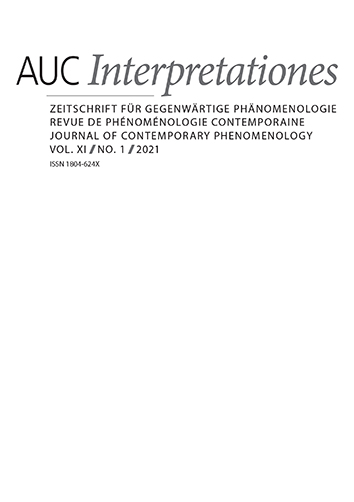AUC INTERPRETATIONES, Vol 1 No 2 (2011), 27–45
Vers une philosophie schellingienne de la créativité. Subjectivité et folie à l’aune de Slavoj Žižek
Joseph Carew
zveřejněno: 13. 01. 2015
Abstract
This article is an attempt to reactualize F. W. J. Schelling by taking seriously and turning inside out Heidegger’s radical claim that Schelling’s philosophy of freedom is the culmination (Gipfel) of the German Idealist tradition. First, the author uses Slavoj Žižek’s work in order to give weight to Heidegger’s controversial claim. By interpreting the Schellingian logic of the ground (Grund) as an attempt to found transcendental freedom, Žižek is lead to declare that the Schelling of the period of the Philosophical Investigations into the Essence of Human Freedom and the Ages of the World radicalizes the incompleteness of reality as brought forth by the Kantian descriptions of freedom. Then, the author tries to show that Žižek does not go far enough. Although the late Schelling develops an account of what could be called an “ontological passage through madness”, it is only a moment within the processional totality of being. The image of the artist shows us a point of transfiguration (Verklärungspunkt) where the impetuous “unruliness” at the foundation of subjectivity is converted into a new order of being by means of an activity of free and unpredictable creation. This does not only occur in the Symbolic; more strongly, it is an immanent, transfigurative event in the world.

Vers une philosophie schellingienne de la créativité. Subjectivité et folie à l’aune de Slavoj Žižek is licensed under a Creative Commons Attribution 4.0 International License.
148 x 210 mm
vychází: 2 x ročně
cena tištěného čísla: 180 Kč
ISSN: 1804-624X
E-ISSN: 2464-6504
